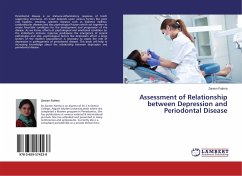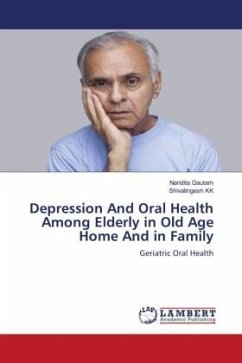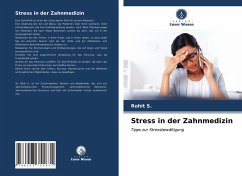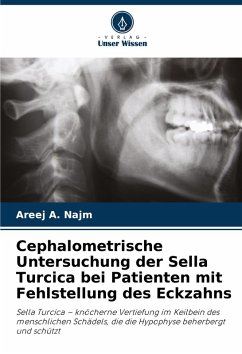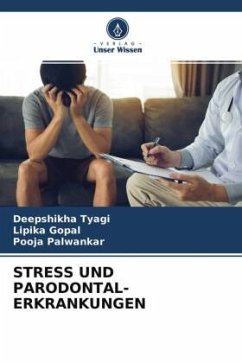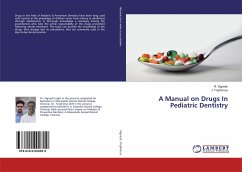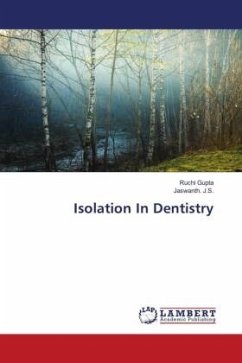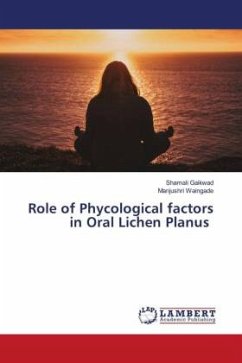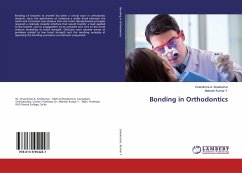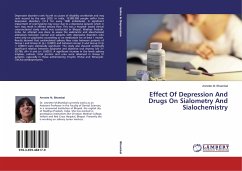
Effect Of Depression And Drugs On Sialometry And Sialochemistry
Versandkostenfrei!
Versandfertig in 6-10 Tagen
51,99 €
inkl. MwSt.

PAYBACK Punkte
26 °P sammeln!
Depressive disorders rank fourth as causes of disability worldwide and may rank second by the year 2020. In India, 10,000,000 people suffer from depressive disorders, (31.2 for every 1000 individuals). A significant impairment of oral hygiene may occur due to a depressive episode which in turn may result in altered salivary flow. This was a hospital- based clinical cross-sectional study which was conducted in Bhopal, Madhya Pradesh, India. An attempt was done to assess the sialometric and silaochemical alterations between normal and subjects with depressive disorders who were only on psychiatr...
Depressive disorders rank fourth as causes of disability worldwide and may rank second by the year 2020. In India, 10,000,000 people suffer from depressive disorders, (31.2 for every 1000 individuals). A significant impairment of oral hygiene may occur due to a depressive episode which in turn may result in altered salivary flow. This was a hospital- based clinical cross-sectional study which was conducted in Bhopal, Madhya Pradesh, India. An attempt was done to assess the sialometric and silaochemical alterations between normal and subjects with depressive disorders who were only on psychiatric counseling or on medication for at least 1 month. Results showed that unstimulated salivary flow rates between patients of Group I and Group III (p 0.0001) and between Group II and Group III (p 0.0001) were statistically significant. The study also showed statistically significant relation between subjective and objective oral dryness (chi 2= 55.789, df= 6 and p 0.0001). A significant increase in the levels salivary amylase, calcium, total protein and urea were observed in Group III patients- especially in those administering Tricyclic (TCAs) and Tetracyclic (TeCAs) antidepressants.



